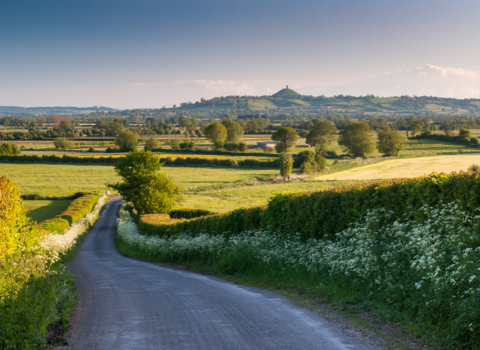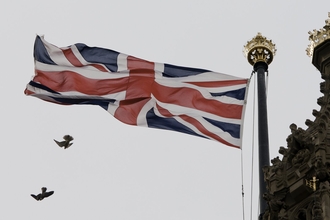A general election is on the horizon
2024 will be a defining year for nature recovery because of the General Election. If the existing 2030 targets, of halting nature’s decline and protecting 30% of land and sea are to be met, the next government will have to do the bulk of the work. The Wildlife Trusts want to see all party manifestos include commitments that will trigger a new approach to restoring nature – at a time when the scale of wildlife decline has never been greater.
Published in September 2023, the State of Nature report revealed that one in six species is in danger of going extinct in Great Britain: putting nature at greater risk than in previous iterations of this report. Despite this, there were repeated attempts to weaken regulations that protect nature such as the nutrient neutrality rules that prevent excessive pollution our streams and rivers through new development. The UK Government reneged on major environmental promises such as the ban on the sale of bagged peat compost, which has yet to be implemented despite years of consultations and missed targets.
Nature is in desperate need of restoring – for wildlife, for our food security and for our climate – and Britain’s love of wildlife spans across the political divide. Surveys of Wildlife Trust members and the wider public demonstrate that, irrespective of voting choice, nature matters to everyone – with many calling out for political parties to offer bold plans ahead of the next election.
While The Wildlife Trusts are at the forefront of helping nature recover on the ground by leading seagrass, rainforest and peatland restoration, community engagement and wildlife recovery programmes, it is vital that all political party manifestos reflect the scale of the task. Here in Somerset, we highlight the following five priorities for the next UK Government.
Did you miss our recent webinar 'Wilder Matters: Voting for Nature'? Click here to listen back to this online event featuring Elliot Chapman-Jones, Head of Public Affairs for The Wildlife Trusts and Steve Mewes, Local Nature Partnership Coordinator & Advocacy Manager - regardless of your political leanings, the 2024 general election is a huge opportunity to stand up for nature.
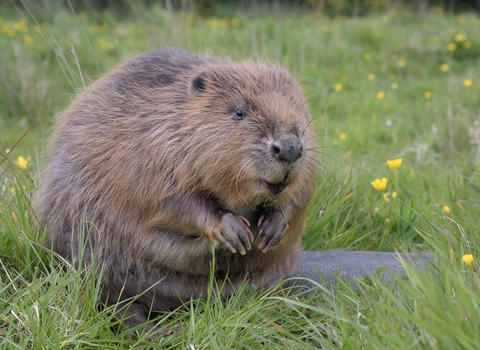
Nick Upton
Bring back the UK’s lost wildlife
The UK is home to species found nowhere else on Earth. But immense pressure from decades of pollution and habitat loss has driven wildlife into catastrophic decline. Shockingly, 1 in 6 species in the UK is now at risk of extinction.
Nature is declining at a speed never previously seen and shows no sign of slowing. It is no longer enough to just protect the wildlife that remains – we need the next UK Government to align across departments to put nature into recovery, on land and at sea, by the end of the next Parliament.
Nature is vital to us all – for the food we eat, the water we drink, the air we breathe, and the space to help us feel secure, happy, and healthy. In recent years, we have also seen increasing numbers of people actively looking for ways to access nature close to where they live. Without urgent action to bring wildlife back from the brink, communities across the UK risk bearing an unimaginable cost.
To bring back our lost wildlife and put it on a path to recovery, we’re calling on all political parties to:
Make more space for nature
To reverse the declines of wildlife, more places are needed for nature. Currently, just 3% of land and 8% of English waters are properly protected for nature – this is nowhere near enough. The next UK Government should launch an Olympic-style cross-government delivery project to protect and restore at least 30% of land and sea for nature by 2030.
Turning back the tides on coastal habitats
Despite the amazing diversity of habitats and wildlife along Somerset’s fifty miles of coastline, it often doesn’t get the attention it deserves. This vibrant piece of coastline includes sand dunes, rocky shores, cliffs, salt marsh, tidal estuaries, mud flats and coastal deciduous woodland, with 80% having environmental protection.
The Wildlife Trusts believe that we cannot afford any further reduction in the quality or quantity of our coastal habitats. Allowing these habitats the space to adjust by relaxing artificially fixed sea defence lines will be essential. We are working towards conservation of all coastal habitats and the wildlife they support. We are also working to raise awareness that managed realignment and habitat restoration is an economically viable and environmentally acceptable solution.
Bring wild beavers back to every county
Beavers are a keystone species which means that they play a crucial role in how an ecosystem functions. By building dams, digging ditches and coppicing trees, beavers can alter their surroundings in a big way – and in a way that has many benefits for people and wildlife.
Beavers can create large areas of water-retaining wetland, slowing the flow of streams and rivers and protecting the land downriver from flooding, as well as reducing silt and improving water quality. These restored wetlands also provide essential habitat for a wealth of plants and animals.
With these benefits, it’s easy to see why there is so much interest in bringing beavers back to the UK.
Useful resources
- The first Somerset State of Nature report 2023 provides an important benchmark of how wildlife is faring across our county and follows the national State of Nature Report launched in September 2023: https://www.somersetwildlife.org/stateofnature2023
- Beavers create thriving ecosystems helping us to put nature firmly back on the road to recovery. Find out more. Beavers | Somerset Wildlife Trust
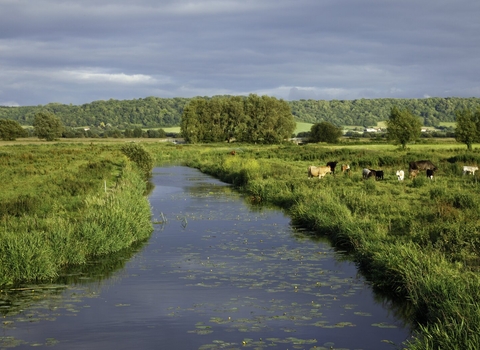
Sowy River and King's Sedgemoor in early summer, Greylake, Somerset Levels, Somerset, England, UK - Guy Edwardes/2020VISION
End river pollution and water scarcity
The state of our rivers is a national disgrace. The UK is ranked as one of the worst countries in Europe for water quality, with pollution beyond legal limits caused by a toxic cocktail of sewage and agricultural pollution. Currently, 40% of waters fail quality targets due to pollution from agriculture and land management and in 2022 alone, raw sewage was discharged into waterways over 300,000 times.
Our rivers are no longer suitable homes for wildlife, they are not fit for people to swim in, and thanks to climate change and growing demand, we are seeing water availability decrease before our eyes. This is a crisis – and one which the public wants to see urgently resolved.
To end river pollution and unsustainable water use, we’re calling on all political parties to:
Enforce the law
Cuts to enforcement agencies and environmental protection budgets over the past decade have left our rivers defenceless against polluters. Environmental watchdogs must be empowered and sufficiently resourced to ensure they can monitor and inspect polluters and enforce penalties upon those who break the law.
Halve nutrient pollution by 2030
Sewage, wastewater and agriculture are all suffocating our rivers and the wildlife that depends on them. The public rightly want to see heathy, safe and clean rivers, lakes, wetlands and coasts. Nature can be part of the solution – for example stopping rainwater from overwhelming the sewage system and agricultural pollution from leaching into freshwater habitats.
Useful resources
- For Somerset Wildlife Trust, water quality is of ongoing concern across the county, but never more so than for the land we manage on the Somerset Levels & Moors. Read more in this blog post
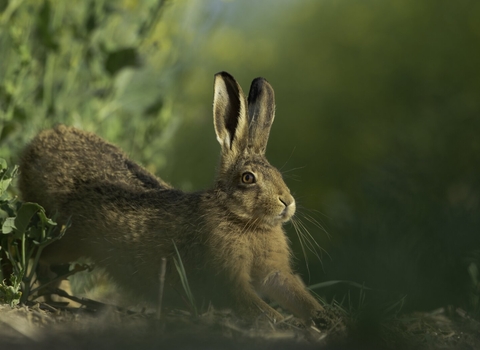
Andrew Parkinson/2020VISION
Fund wildlife-friendly farming
By supporting farmers to shift towards regenerative, nature-friendly methods, farming has huge potential to deliver a green rural renewal. Farming is too often unsustainable, but with management of over 70% of UK land, farmers should be a significant part of the solution.
The destruction of nature and the impacts of climate change are the biggest threats to food security in the UK. Food production relies on healthy soils, clean water, and resilience to climate change. But farming is one of the main causes of wildlife declines, as well as the leading cause of river pollution in England. Restoring nature on farms will bring many benefits, not just for wildlife but also for farmers. Working with nature can increase farm profits and resilience, reduce costs, and maintain or even improve yields.
Many farmers and land managers have gone to great lengths to support wildlife without being adequately rewarded. The real terms value of the budget for environmental farming has already fallen by a third since 2010. Not investing properly means everyone loses.
To support a just transition for farmers, we’re calling on all political parties to:
Increase the budget for wildlife-friendly farming
To reverse the decline of nature by 2030, and secure the UK’s long term food security, the budget to support wildlife-friendly farming should be increased to at least £4.4 billion a year. This will ensure the agricultural transition is fair to farmers and better for wildlife, while providing healthier and more affordable food for all members of society.
Halve pesticide use
The catastrophic decline of insects is having a huge effect on the rest of the natural world. Insects are the canaries in the coal mine – their collapse is an alarm bell that must not be ignored. To save the future of insects – and all life that depends on them – the next UK Government must halve pesticide use by 2030 and maintain all bans on of bee-killing and human-health-harming neonicotinoids once and for all.
Help farmers reduce emissions and adapt to climate change
The extreme heat, wildfires, and droughts in 2022 provided a taste of the reality to come. Farmers need much more support to adapt to climate change and to help meet the UK’s climate goals, as well as reducing their emissions. Adaptation and mitigation need to be embedded in farm payment schemes; farmers need better information about how farming with nature can increase their resilience; and a land use strategy is needed that considers how food production needs to change in the UK in response to climate change.
Useful resources
- Catch up on the “Wild Live” events from the Wildlife Trust covering topics such as food and farming, and Labour and Conservatives plans for nature: https://www.wildlifetrusts.org/wild-live
- “Pitting food security against nature recovery is a dangerous distraction – our food security depends on a thriving natural world”, an article from the Wildlife Trusts: https://www.wildlifetrusts.org/blog/barnaby-coupe/food-security-nature-recovery
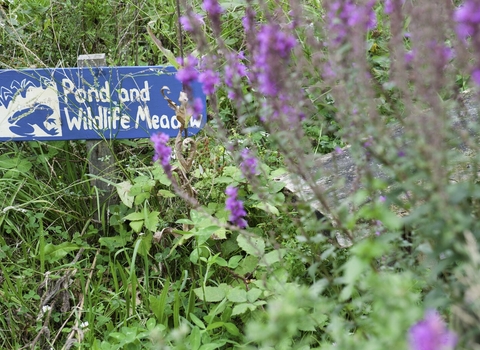
Brockwell Park Community Greenhouses, South London - Paul Harris/2020VISION
Enable healthy communities through wilder planning
Right now, in the UK, poor quality living conditions are damaging people's health and cutting lives short. It is the most disadvantaged and the most vulnerable who are bearing the brunt of this situation. Those living in the most deprived areas are ten times less likely to live in the greenest areas. More than one third of the population - nearly 9.5 million households in England – are unable to access green places near their home. The current situation is unfair – but it does not have to be like this.
Improving access to natural, wildlife-rich places where we live, learn and work will transform people’s lives, improving health, happiness, and hope across communities. To bring about healthy and sustainable communities, we’re calling on all political parties to commit to a cross-Government fund to grow community-based health services.
To bring about healthy and sustainable communities, we’re calling on all political parties to
Commit to a cross-Government fund to grow community-based health services
The Wildlife Trusts and organisations from creative arts, sport and physical activity sectors have a critical role to play. ‘Social prescribing’ must be integrated into health and social care services in the community. It makes economic sense and has the potential to deliver improved health and well-being at scale. Independent economic analysis has found that Wildlife Trust's health and wellbeing programmes save the NHS money and cut reliance on their stretched resources. One project that tackled loneliness and isolation in older people could deliver cost savings to the NHS of £100 million benefiting the health and wellbeing of 1.2 million people.
A Right to a Healthy Natural Environment
Access to a clean and healthy environment is a basic human right that should be guaranteed through law. Doing this would protect nature, improve people’s physical health, and improve mental wellbeing by reducing feelings of eco-anxiety. Local Authorities should be empowered to work alongside communities, to address inequalities in access to natural spaces in their local areas.
Give every child the best start in life
Every child has the right to learn in and about nature. Taking learning outdoors benefits children’s mental health and develops a deeper appreciation for the environment and their role in protecting it. Building a lasting connection with nature in childhood shapes our adult lives and attitudes towards wildlife, climate change, and how we choose to live. New statutory guidance to deliver learning outdoors for all can ensure our schools support happier, more confident children who understand their impact on our natural world.
Useful resources
- Planning for development and nature: https://www.somersetwildlife.org/what-we-do/restore-somersets-nature/campaign-nature/wilder-planning
- Housing principles: https://www.wildlifetrusts.org/sites/default/files/2022-11/Housing%20Principles%20Report_LR.pdf
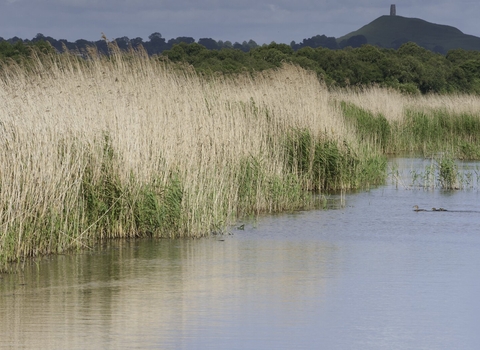
Ham Wall RSPB Nature Reserve, Somersel Levels, Somerset, June 2011 - Paul Harris/2020VISION
Tackle the climate emergency
We are in a climate and nature emergency, and the two are inextricably linked. Climate change is driving nature’s decline, and the loss of wildlife and wild places leaves us ill-equipped to reduce carbon emissions and adapt to these changes. One crisis cannot be solved without the other. The UK has a legal target of Net Zero greenhouse gas emissions by 2050. Nature can make a massive contribution to achieving this, but only if our damaged ecosystems are restored.
We estimate some 300,000 tonnes of CO2 equivalent are released each year from peatlands and peat mining in Somerset, 10% of the county’s total emissions. Sadly, Somerset is also one of the last counties in England where peat mining still happens. Once mined, the peat is dried and blended into compost. But what happens to the large, open peat mines? Typically, they have been lined with clay and filled with water. Some are managed as fishing lakes, others for nature. At Somerset Wildlife Trust, we have turned some of these sites into fantastic habitats for nesting wildfowl and a host of other vulnerable species.
To tackle the climate emergency, we’re calling on all political parties to:
Help nature and people adapt to climate change
The next UK Government must measure progress on adaptation at the same time as progress on reducing carbon emissions. Adapting to climate change must be integrated across all UK Government policies. Ignoring this will put our natural carbon stores – such as peatlands and woodlands – at risk of extreme heat, fire, and drought, which will lead to massive releases of more carbon into the atmosphere. Habitats need to be connected together to make it easier for wildlife to move, and we need to transform land use and undertake widespread restoration in some areas, such as the Fens, to give them a chance of withstanding climate change impacts.
Protect our Blue Carbon
The marine environment has a huge role to play in locking up and storing carbon. Destroying these ‘Blue Carbon’ sources will worsen climate change even further and could make Net Zero unachievable. It is essential that these important stores of Blue Carbon are recognised, monitored, and protected from damaging development and activities.
Upgrade energy efficiency for homes
The greenest energy is the energy we don’t use. To reduce emissions, costs, and energy bills, the next UK Government must help homes upgrade their energy efficiency urgently, by rapidly expanding home retrofit schemes to bring the entire UK housing stock to a good level of efficiency by 2030. Without serious action, heating and cooling is likely to stay unaffordable for millions of people while energy is wasted – leading to poor outcomes for people’s health and for our environment.
Useful resources
- Somerset Peat. A short film produced as part of the Adapting the Levels project. Watch the film
- The Lowland Peat of Somerset. In this six-minute film, Steve Mewes explains the formation and importance of peat. Watch now

